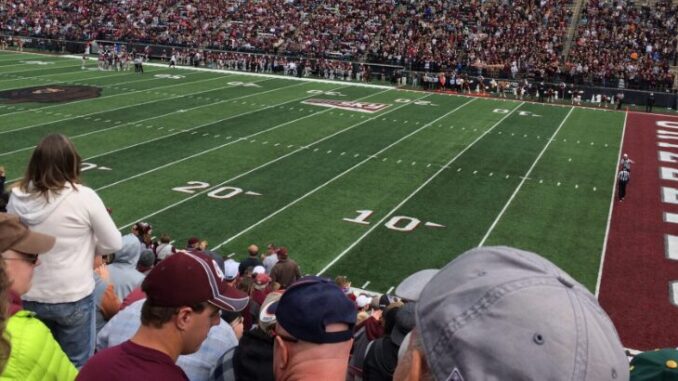
Gov. Greg Gianforte expressed concerns Tuesday about a proposed ** $ 2.8 billion NCAA settlement** with student athletes regarding their Name, Image, and Likeness (NIL), stating it is unfair to more rural states like Montana and would “have a devastating impact” on their athletic programs.
If this settlement is approved, it will compensate college athletes for previously denied remuneration for their NIL and performances, as outlined in a court filing. Recently, the South Dakota Board of Regents filed a lawsuit claiming the settlement disproportionately benefits larger universities and negatively impacts female competitors.
According to South Dakota Attorney General Marty Jackley, the two largest public universities in his state could lose about 1 million annually in NCAA revenue under the settlement. Meanwhile, estimates suggest that Montana State University and the University of Montana could collectively incur a loss of around 4.4 million over a decade.
The lawsuit against the NCAA argued that student athletes were unfairly deprived of compensation for their NILs and challenged rules barring them from value exchange for commercial use. Attorneys for the athletes have described the settlement as “revolutionary” with the potential for substantial positive change for Division I athletes.
Pending court approval, the settlement could become one of the largest antitrust payouts in U.S. history, fostering beneficial changes for college athletes. However, Gianforte, along with governors from South Dakota, Idaho, Wyoming, and North Dakota, urged NCAA President Charlie Baker to reconsider the settlement, stating it imposes undue financial burdens on smaller athletic programs in rural areas.
The letter highlights that only the Power Five conferences, which are the most influential, were involved in the lawsuit and settlement negotiations, leaving other programs, including those in Montana, liable for nearly ** $ 1 billion** owed to athletes outside those conferences. This outcome could significantly affect smaller colleges despite being a minor detail for larger programs.
Montana Attorney General Austin Knudsen has not yet commented, but Haslam indicated concerns about the settlement’s impact on funding for UM and noted that while the settlement is overall positive for college athletics, it burdens smaller schools that weren’t part of the litigation.
The Montana University System expressed gratitude for Gianforte’s support, agreeing that the settlement costs disproportionately affect smaller institutions. NCAA commissioners have praised the settlement as a step toward providing better benefits for student athletes while ensuring a stable future for college sports. Settlement discussions began in November 2022 with the help of a mediator experienced in NCAA compensation disputes.

Leave a Reply